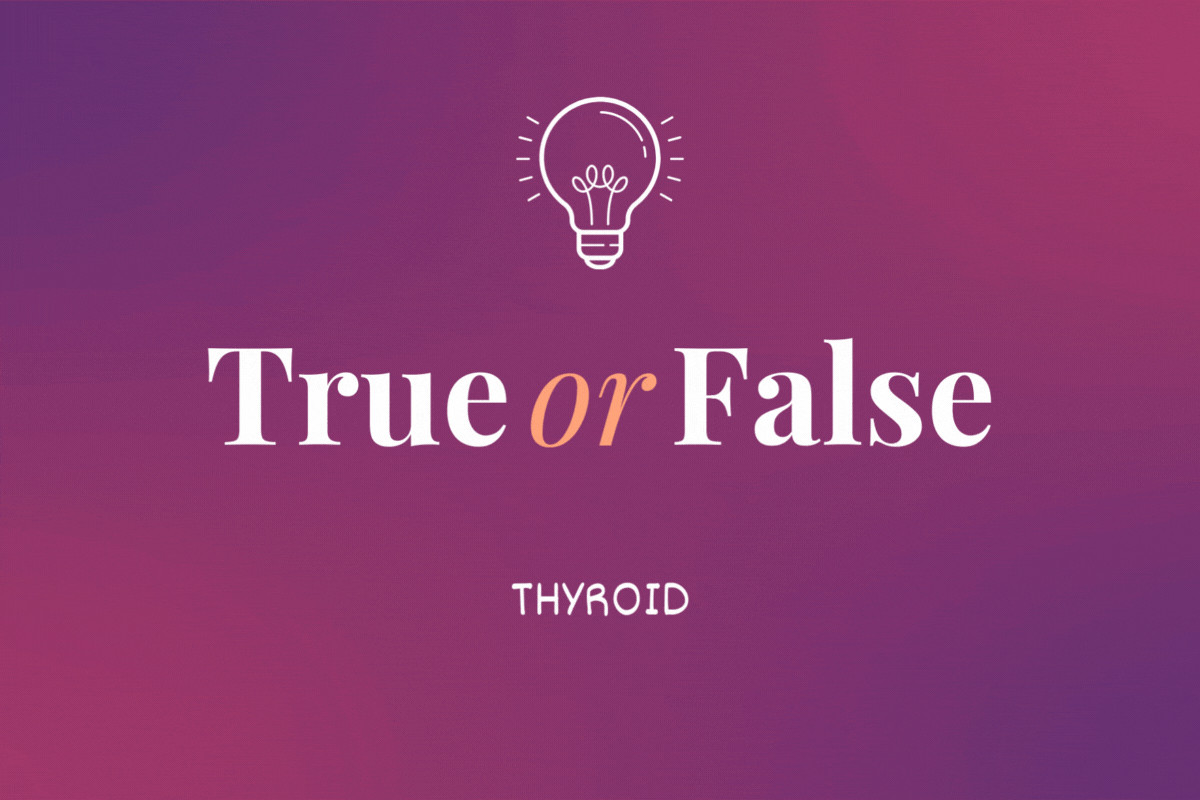Sometimes, you can blame your weight gain on eating too much and not exercising enough.
But other times, you can blame your thyroid.
If you have hypothyroidism, it can slow your metabolism and make it harder for you to lose pounds and maintain a healthy body weight. That's because the condition causes your thyroid to underperform and become underactive and unable to produce enough of the thyroid hormone necessary to allow your body to function properly.
Your metabolism, in addition to regulating your body temperature and your heartbeat, affects how efficiently and effectively your body burns calories.
What causes your thyroid to underperform? There are a number of conditions and circumstances that can cause hypothyroidism; the most common is Hashimoto's thyroiditis, an autoimmune disorder that causes your body to produce antibodies that attack and destroy the thyroid gland, leading to chronic inflammation. Over time, your thyroid loses its ability to produce enough thyroid hormone. The condition tends to run in families and most commonly occurs in middle-aged women, though it can affect men, women and children of any age.
Initially, there are no signs or symptoms of Hashimoto's, because it usually progresses slowly over many years. But over time, the tell-tale signs begin to surface. You may develop a goiter, which is an enlarged thyroid; it may be visible as a lump on your neck and may be tender to the touch and cause difficulty swallowing or it may be small and not cause symptoms. Eventually, you may develop clear-cut symptoms of hypothyroidism, which may involve fatigue, weight gain, forgetfulness, constipation, increased sensitivity to cold, depression, dry skin, muscle aches, irregular or heavy menstrual periods and a reduced tolerance to exercise.
Learn more about 15 Things Your Thyroid Can Affect.
But you can have an underactive thyroid without having Hashimoto's: For the one in eight women who will develop a thyroid condition, it can also be caused by things like a viral infection (thyroiditis); radiation therapy to your neck area (radiation may damage the cells in your thyroid, making it more difficult for the gland to produce the hormones it needs); certain medications used to treat heart or psychiatric problems and/or cancers; surgery to remove the thyroid; or a deficiency of iodine in your diet, though this is rare in the United States, because iodine is routinely added to salt and other foods (iodine-rich foods include eggs, dairy products, seaweed, saltwater fish and shellfish).
Other things, like pregnancy, can affect your thyroid. Known as postpartum thyroiditis, the condition causes the thyroid to become inflamed after pregnancy, making thyroid levels first increase, then sharply drop. This condition usually resolves itself. Sometimes a thyroid problem can be caused by issues with the pituitary gland or hypothalamus, as well.
But having a sluggish thyroid is not an excuse to give up and say that nothing can be done. While it's true that it might take you longer to lose weight than someone with a normal thyroid, there are things you can do to get your thyroid back to speed.
Fortunately, hypothyroidism, which can be diagnosed with a physical exam and blood tests to check hormone levels, can be treated with a synthetic hormone supplement, like levothyroxine (Levoxyl, Snythroid), which can give your body the amount of thyroid hormone it needs to keep your metabolism functioning at an optimal speed.
Once you're on the medication, you're usually on it for life (hypothyroidism can't be cured but can be controlled). Doses may need to be changed from time to time. But be warned: That's not the magic bullet and won't reverse your weight gain. You still need to work at it.
Controlling your weight through a regular, consistent exercise schedule and proper nutrition is a must. A sluggish thyroid can make you feel sluggish, in turn, making it more difficult to feel energetic enough to exercise and slowing your body's ability to burn calories. But exercise is one of the best ways to get your sluggish thyroid back to speed and functioning at its best.
Making that commitment for better health benefits not just someone with hypothyroidism, but everyone.
Read more:
How Hormone Levels Get Off Track
- Thyroid Awareness: What Happens When This Little Gland Goes Haywire ›
- 15 Things Your Thyroid Can Affect ›
- Thyroid Disorders ›
- Hashimoto’s Disease Brought the Curtain Down on My Career As a Soloist in the NYC Ballet - HealthyWomen ›
- Fast Facts: Everything You Need to Know About the Thyroid - HealthyWomen ›







